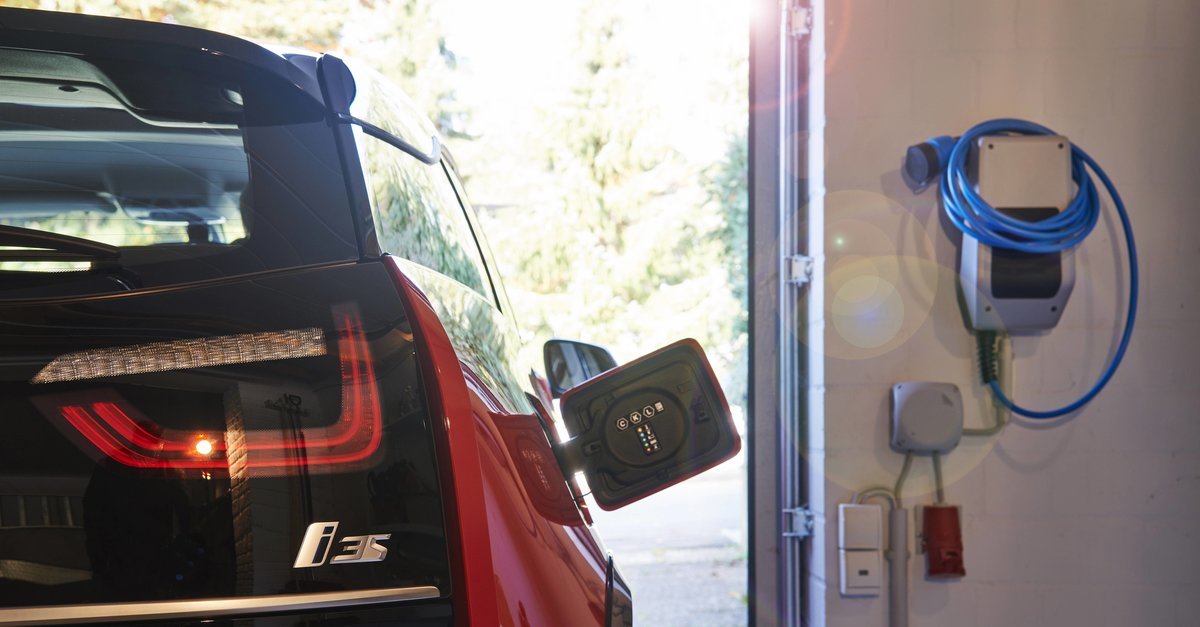Planetary Intelligence: Climate protection software for sustainable habitats
In the “Start-up-Check!” series, we regularly examine the business models of start-ups. Who is behind the company? What makes the start-up so special and what is there to criticize? Today: Planetary Intelligence (PI) from Seattle.
Start-ups: That sounds like inventiveness, future technologies, new markets. In reality, however, many of the start-ups unfortunately often turn out to be a mixture of an e-commerce idea, haphazard founders and shaky future prospects.
But they do exist: the pioneers who work on the big problems and revolutionize business models. Finding and presenting them is the aim of our Start-up-Check format. Today: Planetary Intelligencewith offices in France, England and Germany.
Contents
What is Planetary Intelligence?
Rarely do we look at such a young start-up as PI in this section. Even their core product, which is part of the Climat-Tech division, is still in the beta phase. While other start-ups are often excited to continue developing the product at this point, Planetary Intelligence is characterized by calm, serenity and serenity.
That’s because of the leaders behind the company. Because the two founders Jenny-Marie Larsen (CEO) and Sarah-Louise Penhall (COO) bring a lot of start-up experience to their latest project.
While Larsen has a very impressive record of four successfully founded start-ups, Penhall is characterized by her operational competence, which can be traced back to numerous management positions in technology-heavy industries.
Connections to marine explorer Jacques-Yves Cousteau
Both know their craft and, that much is clear, know how to pour know-how into a commercial product. Incidentally, the company also received an additional boost from an encounter at a conference where Larsen met the granddaughter of the famous marine researcher Jacques-Yves Cousteau.
Celine Cousteau, who continues the work of her grandfather, has since supported the two founders’ project as a consultant on biodiversity issues. From her, Larsen and Penhall received crucial impulses about how sustainably, for example, indigenous populations can manage the land on which they live with simple means.
The question Cousteau posed was: Why aren’t supposedly more “civilized” regions of the world able to do this? Because it is undisputed that the necessary solutions to counteract environmental problems such as the lack of biodiversity or climate change have long existed.
But they are often stuck in silos, which means: progress is not shared, cooperation is not practiced. So what is obviously missing is an overall solution for the concerted use as well as for the scaling of these solutions.
What does Planetary Intelligence do?
And this is exactly where Planetary Intelligence comes in with its product: the so-called “Sustainable Dashboard”. The software helps populations, but also companies, cities, countries and states to understand which measures need to be used where and in what combination in order to improve people’s living conditions in a sustainable and environmentally friendly way.
So it’s a kind of recommendation engine for climate solutions that works using geo-targeting. This houses hundreds of solutions (natural, technical, social and political) along with data on the projected impacts, so one can also understand the expected carbon reduction results of investing in solutions.
Machine learning is predominantly used here to determine which combination of solutions is required in each location on earth. In this task, the findings from more than 50 years of research on climate change provide valuable assistance. For example in the form of constructive models that are enriched with the help of machine learning and artificial intelligence.
This results in strategies that achieve a lasting effect. What is exciting about this is the mix of NGO and for-profit approach, ensuring that the collective knowledge about what works and what doesn’t in the context of climate solutions always remains accessible to the public.
Platform-as-a-Service
The software, which is operated as a platform-as-a-service solution (PaaS), records the effects of the solutions used using the donut model, among other things. Not only can this be used to identify the best measures for a location, the model even ensures that they can be repeated indefinitely.
Because: If a mix of measures works in one place, there is a high probability that there are many other places with similar conditions and requirements for which this specific combination could also be well suited. This allows solutions to be captured at scale, predicting their global impact, and scaling.
The main goal of the model is to reformulate economic and social imbalances in a sustainable, ecological context and to set new goals.
According to this, an economy is considered prosperous if it fulfills all twelve social basics (e.g. education, jobs, health and income) without one of the nine stipulated ecological limits (e.g. acidification of the oceans, chemical pollution, use of fresh water, loss of biodiversity, climate change). This situation is considered the safe and just space for all humanity.
What makes Planetary Intelligence so special?
Against this background, cities and metropolises in particular are challenged. Because in their area a good 73 percent of the emissions emitted worldwide are reduced. However, they still have to reach the net zero target set by the UN climate summit before 2050. Main responsibility for emissions: companies.
The current practice of emissions trading, according to which companies that act in a particularly environmentally friendly and sustainable manner and fall below the legally specified pollutant limits, are either rewarded by the legislator in the form of tax relief or can sell these “uncaused” emissions to other companies, is in the PI Engine obsolete.
Instead, the software favors those clean measures that are launched by companies themselves and have an immediate effect without making them part of a counter-trade. The task of the dashboard is to separate ineffective from effective measures site-specifically and to find a mix that achieves a maximum sustainable and ecological effect.
What is the benefit for companies?
But why should companies get involved? The most obvious answer: net-zero before 2050 – but also because consumers and customers now prefer to buy products that are linked to values such as sustainability or ecology.
Companies whose products and services are not able to offer customers this value experience will lose out in the long term because consumers are increasingly turning to brands that are characterized by sustainability, among other things.
According to this understanding, companies no longer only play the role of technology drivers, they can also become a “decarbonization engine”. In this way, they not only have an effect on employees, but also on the relevant target groups, customers and the city’s population.
For example, it is conceivable that BMW itself will work with the city of Munich and act as a sustainability sponsor. Employees, residents of the city but also the company would all benefit equally from this commitment.
Conclusion: Good prospects for planetary intelligence
I rate the approach of the climate protection dashboard as very useful and positive. One of the first customers is the Parisian suburb of Saint Ouen. The city uses the dashboard to track the effect of the implemented measures. These include urban farming or green education programs.
At the same time, PI collects data that can be used for comparable cities that are, for example, in the same or a neighboring region. Many other cities in Europe, North America and Brazil are already expressing interest in the dashboard. And the GUD (Global Urban Development) also wants to make it available to its member cities.
The international organization wants to promote the net zero process in cities worldwide. The PI dashboard provides insights that also initiate a learning process. This is particularly necessary for urban decision-makers in order to make efficient investments in climate solutions.
This is the biggest challenge for planetary intelligence
The biggest challenge for PI itself, however, is likely to be getting valid data. Because the system needs feed in order to obtain reliable forecasts for suitable measures. There is no doubt that cities have this data. But the question is much more: Are they able to provide these in the appropriate quality?
What is much easier to do for companies, for example, can represent an insurmountable hurdle for a public administrative apparatus. It means: cleaning door handles and doing persuasion work. A good network helps with this. And the two start-up professionals Larsen and Penhall should definitely have that.
Also interesting:



